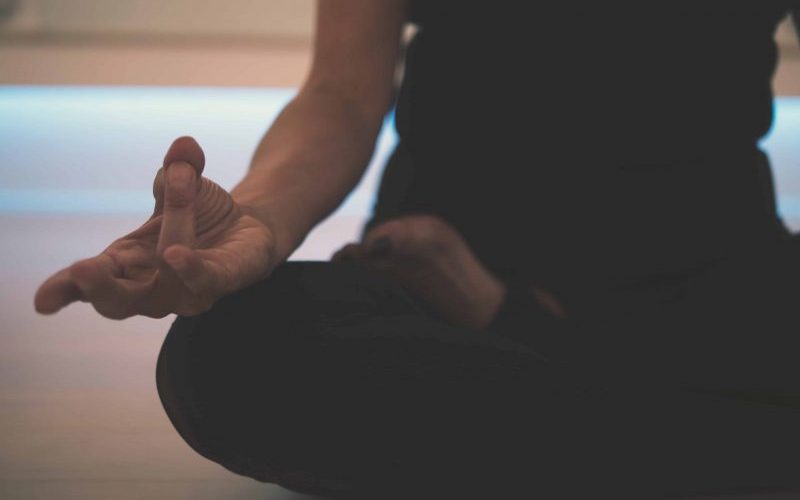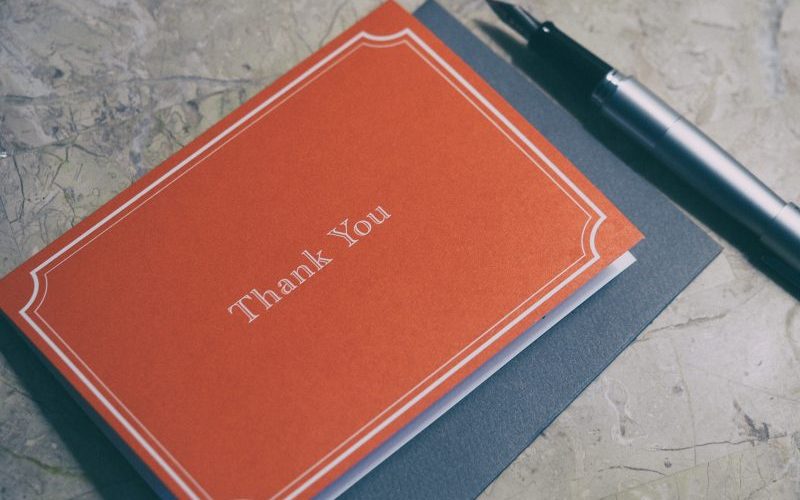
Gratitude is something that is sorely lacking today. Too many people feel they are entitled to what they have, and even a simple “thank you” is too much to ask from them. A lot of the stress we feel about our lives can be traced to feel entitled to the “nice things” that others have. Still, I believe that if you learn how to practice gratitude, you can shift your focus—and with this new attitude, everything can change.
“Be thankful for what you have; you’ll end up having more. If you concentrate on what you don’t have, you will never, ever have enough.” – Oprah Winfrey
“A Man Must Feel the Bite of Winter to Feel the Warmth of the Hearth.” If you are a Game of Thrones fan, then you’ve heard these words before, but more than a quote from a TV program, it is a beautiful description of what gratitude is and why it is an essential antidote to the emptiness we feel in life. Because of the comforts that surround us—comforts that previous generations would have found unimaginable—that we have become numb, entitled, and unable to feel gratitude for what we have.
We have become numb, entitled, and unable to feel gratitude for what we have
Today we have smartphones connected permanently to the internet. We have access to the repositories of all the knowledge of humankind, but imagine if there was no internet. No instant communication with your friends wherever they may be in the world. No Wikipedia or other websites from which we can mine the collective knowledge of the world. Just 20 years ago, that was the reality.
I remember a time when we had to go to the library to access the internet because the home internet was not yet a thing. It is because I know what it was like before the internet that I appreciate its existence more.
Now apply that to something closer to home. Imagine what life would be like to be an orphan. To not have a mother nagging you to put on a shirt or some other mundane “motherly” thing. To not have a father giving outdated life advice while teaching you how to do “manly” things more suited to the 1950s. Just the thought of not having your parents ought to get you to call them right now to tell them you love them.
Mindfulness As A Method Of Practicing Gratitude

If you haven’t seen my article on mindfulness, maybe now would be a good time to give it a read. Mindfulness is the ability to appreciate the present and the things we have in the here and now. By practicing mindfulness and the science of gratitude, we can be grateful for what we have, even if it is not necessarily what we want, or not as good as what we desired.
A mindful person lives in the moment and enjoys the wonders of what they possess at the moment. By being content, the mindful person does not covet what they do not have. They are grateful for what they already have and do not take for granted their blessings or the achievements they have reached. A person trained in the art of mindfulness will savor with gratitude the life they already have. They will not covet a life that they could have had or that they desired in their youth.
For example, I know a man who became a lawyer at the age of 33. Recently, he lost both his parents within two years of each other. His doctor suggested that he discipline himself and develop mindfulness as an antidote for chronic, long-term dysthymia, which is the combination of an anxiety disorder and low-grade depression.
If this man decided to only focus on the negatives in his world, he might be cursing the powers that be for taking away his parents. He could be resenting the fact that it took him so long to become a lawyer.
But a mindful and grateful heart would teach him to be thankful that he had his parents for the first 30 years of his life. He had the privilege of becoming a lawyer in a state where more than 80% of those who finish law school do not ever attain this status. He has a lot to be grateful for if only he can train himself to see the light instead of dwell in the darkness.
He has a lot to be grateful for if only he can train himself to see the light instead of dwell in the darkness
In a way, mindfulness and gratitude will form a positive feedback loop in your life. Try it and watch as your attitude toward everything in your life changes.
The Scientific Argument In Favor Of Gratefulness
In a study, researchers learned that a person’s happiness level could be stable over the long term. This means that a grateful person can have a high level of happiness, and they can sustain it over a prolonged period. So, the bottom line here is: A grateful person is happier. (Consider rereading what I wrote about mindfulness earlier in this post, and start reaping the benefits of being happier right now.)
The same study also found that not only were people with a grateful mindset 25% happier, but they were far more optimistic about the future, too. One way to understand this is that the person who has a positive outlook in life will see the world differently. The grateful attitude for the present will permeate their attitude for the future.
If you think about it, this makes perfect sense. Someone with a grateful heart has a positive outlook on life because they aren’t wasting time being jealous or coveting what they do not have. They are already happy because they are content with their life.
This positive attitude has even farther-reaching effects on other aspects of a grateful person’s life. Depression or anxiety are far less likely to take hold because of the grateful attitude that increases their baseline happiness.
A grateful, happy person is less likely to seek out alcohol, drugs, or other compulsive behaviors. This is because these are behaviors that people use to fill a void in their lives. They wouldn’t have to fill a void if they were already fulfilled. Gratefulness means that there is much less of a chance that compulsive behaviors will become attractive to them in the first place.
The Practice Of Gratitude In Our Daily Lives

For those with religious inclinations, the practice of gratitude begins with prayer at the start of their day. Whether they are Christians, Jews, or Muslims, each will typically take part in morning prayers. During this practice, the faithful will thank a higher power for allowing them to rise in the morning after a restful night’s sleep.
If that’s not your cup of tea, then wake up nevertheless with a sense of gratitude. Even if you don’t practice any religion, it would be beneficial to reflect in the morning and take stock of what you have. Do not take anything for granted! If you have a roof over your head, a warm bed, and enough to eat, then you should be grateful.
Be grateful that breakfast is merely a matter of walking into your kitchen and opening the refrigerator or cabinets. Consider how so many others must work or even beg for the meager sums they would need to get the first or only meal of their day.
The Power Of Thank You

“Thank you” should be an important phrase in your vocabulary. Say thank you when someone does you a favor or offers you a simple act of kindness—and if this is not something that you do as a matter of course, well, its time you made it a habit now. Giving thanks is an excellent way to develop an attitude of gratefulness, even if it is just in the little things.
Thank the person in front of you for holding the door for you. Thank your partner for handing you your first cup of coffee each morning. Thank your administrative assistant for bringing you your morning mail at work. It may feel awkward at first, but eventually, it will become a habit.
As a bonus, people will learn to appreciate—and emulate—your newly-developed sense of good manners. The practice of saying “please” and “thank you” has become a lost art in this era of entitlement—the 21st Century. You are spreading gratitude by bringing good manners back into the modern age.
The practice of saying “please” and “thank you” has become a lost art in this era of entitlement
If you want to learn more, you can draw inspiration from the movie Happy, Thank You, More Please. As the movie title suggests, the audience is invited to have an attitude of Happy, Thank You, More Please. If something makes you happy, then be grateful by saying thank you to the person who made you feel this way, and the “More Please” is in reference to asking for more of the thing that made you happy.
Gratitude And The Law Of Attraction

There are many people today who believe in something called the law of attraction. They ascertain that when we want something and work hard to make it happen—or attract it—the universe will somehow bring it to us. For example, if we want a promotion at work, and if we diligently strive to attract the promotion, eventually, we will receive it. There is a mystical, quasi-religious aspect to the law of attraction. Suffice to say that it has many followers, simply because it appears to work.
Even for those of us who don’t necessarily put much stock in the other-worldly, it still makes sense. After all, how do we attract something? By acting toward making it happen. How does an employee attract a promotion? By working more hours, being more efficient, or generally acting in a manner in which they would be more deserving of a promotion.
The same holds with an attitude of gratitude. By being grateful even for small favors or kindnesses, you will attract people to be positively disposed toward you. People tend to feel good and act accordingly when they receive gratitude.
That Uber driver you thanked for bringing you to work? He might have been working all night, perhaps dealing with difficult customers. That small act of kindness in thanking him might be the first nice thing he experienced during his entire shift. That diner waitress you thanked for bringing you your first coffee of the day? That little bit of positive reinforcement and kindness could be the only thing that is holding back her tears.
In both and many other cases, the gratitude you show might very well attract even more acts of kindness from others. The kindness you display may resonate with others, and in turn, make them feel more grateful and allow them to experience a more positive outlook in life. Even if only for the moment that you gave them that appreciative interaction—that brief experience might help them to see that it is possible to obtain an attitude of gratefulness.
Life Is What You Make It. So, Why Not Make It A Grateful Experience?
The ability to be thankful for both small things and great blessings will change your outlook. It can spark a positive feedback loop that will change your inner attitude—and your entire life.
There are even scientific studies that suggest living gratefully can improve your quality of life. Your positive outlook and grateful attitude can stave off depression, as well as many other sources of negativity in your life. Think of it this way: Gratitude helps increase your positivity, and this positivity will help you resist succumbing to the onslaught of negative vibes around you every day.
This positive feedback loop within protects you even further because you will not accumulate negativity, and you’ll have a lower chance of engaging in any risky, compulsive behaviors, which might cause you even more problems later on. After all, if you feel good about yourself, you are far less likely to do drugs or consume excessive amounts of alcohol to “feel better”—and, best of all—this improvement in your attitude can radiate toward others around you.
By practicing gratitude, you may very well be bringing this gift to others in your day-to-day life.
About the Author
 Rebecca Temsen is a Blogger & Editor at selfdevelopmentsecrets.com.
Rebecca Temsen is a Blogger & Editor at selfdevelopmentsecrets.com.



